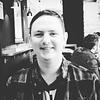Take a photo of a barcode or cover
i like this more in retrospect than i did while actually reading it
This is an epic trilogy. The author finds a semi-believable way to keep the same characters around for more than a century, during which the planet Mars is inhabited and terraformed. The author also brings up matters of great philosophical and psychological interest, as part of conversation and chapter introductions. Highly recommend.
Overall I found this book pretty boring. I didn't connect much with the characters and their mission and its particulars didn't drag me along without them. The few characters who felt well-reasoned and rounded at the start just sort of felt abandoned into characatures later on. The descriptive sprawl of endless nothingness of Mars is a pretty apt analogy to what it felt like reading this.
I should note that the novel is well researched and thought out. The political questions it raises about the reality of a martian settlement are sound. Sound, but boring.
I should note that the novel is well researched and thought out. The political questions it raises about the reality of a martian settlement are sound. Sound, but boring.
In my wait for any news of a new Andy Weir book I decided to pick up Red Mars after I read the back cover. I loved the concept and enjoyed “most” of the novel especially the beginning where the main characters had begun the process of building settlements on Mars. Over time though it began to focus mostly on the politics with several time jumps. I became pretty bored with the political jargon and it almost started to read like a poli sci novel. Again fine, but it just got tedious over time. After a while I switched to the audiobook just so I could speed up the reading through to the end. I did enjoy quite a few parts of it that showed actual life on Mars, but didn’t feel as satisfied with it as I did after reading Jurassic Park or Project Hail Mary. I was just ready for it to end
Pretty vintage hard science fiction. The scenarios are really fun to read about, but a lot of literary flow is sacrificed for the sake of exploring all the nuanced scientific explanation and geeking out fun.
In some respects, the way the perspective moves between several named characters adds more depth to a core group that aren't especially likable. I didn't feel like the core love triangle was super explicable. It kind of felt like Robinson was reaching for some archetypes that I wasn't quite picking up. But you never stay in one place too long.
The science was super fun, but what sets this book apart from later entrants in the genre like The Martian is that the politics of a Mars project are actually explored in some depth and with some realism. The interactions between the nation states, the UN proxy and the transnational corporations reads pretty accurately. It's a nuance that is lost on a lot of science fiction writers.
This book was trending towards 4 stars for most of its duration, but the last quarter of the book or so is kind of a mess. I am OK with Robinson breaking his tale up into a trilogy, but the luxury of knowing you're having a sequel coming is that you should be able to end your first story in a satisfying way. This one dragged more than 100 pages past where it felt like it should have.
The result is that I'm not sure if I'll continue on. I may, but it's likely to take a little while before I revisit.
In some respects, the way the perspective moves between several named characters adds more depth to a core group that aren't especially likable. I didn't feel like the core love triangle was super explicable. It kind of felt like Robinson was reaching for some archetypes that I wasn't quite picking up. But you never stay in one place too long.
The science was super fun, but what sets this book apart from later entrants in the genre like The Martian is that the politics of a Mars project are actually explored in some depth and with some realism. The interactions between the nation states, the UN proxy and the transnational corporations reads pretty accurately. It's a nuance that is lost on a lot of science fiction writers.
This book was trending towards 4 stars for most of its duration, but the last quarter of the book or so is kind of a mess. I am OK with Robinson breaking his tale up into a trilogy, but the luxury of knowing you're having a sequel coming is that you should be able to end your first story in a satisfying way. This one dragged more than 100 pages past where it felt like it should have.
The result is that I'm not sure if I'll continue on. I may, but it's likely to take a little while before I revisit.
Did not have time to read it. Got too far into the book then took a break. Did not remember what I had previously read. Very dense content.
adventurous
dark
emotional
mysterious
tense
medium-paced
Plot or Character Driven:
A mix
Strong character development:
Yes
Loveable characters:
Complicated
Diverse cast of characters:
No
Flaws of characters a main focus:
Yes
This has been on my "to-read" shelf for years now, and I finally decided 2024 was going to be the year I sat down and read the trilogy. This book took me just over three weeks to read. It's challenging but rewarding.
The main draw of the book is the unbelievable amount of research that shows on every page. Kim Stanley Robinson is a man who knows Mars intimately. I have been fascinated by the idea of terraforming Mars for a long time, and this book is extremely realistic in the way it suggests what a real human terraforming effort on Mars might look like.
I went into this book expecting something fairly dry with flat characters who spent the whole time talking numbers and physical processes. I did not expect the book to start with
What took me by surprise was how political the story is, right from its second section. During a solar storm aboard the spaceship Ares, the malcontent Arkady Bogdanov urges the others of the "first hundred" to think about building a new, egalitarian society from the ground up on Mars, an incident that triggers ripples for the rest of the book. The end result is a book that feels extremely cynical and radically optimistic at the same time.
Frank Chalmers is also one of the most compellingly awful characters ever put to paper. He is extremely dislikeable from the moment we encounter him. He has shades of Gully Foyle from [b:The Stars My Destination|333867|The Stars My Destination|Alfred Bester|https://i.gr-assets.com/images/S/compressed.photo.goodreads.com/books/1433671750l/333867._SY75_.jpg|1398442]. And yet he has enough complexities and interiority that he never dips into being an insufferable character to read.
In general, I enjoy the fact that all the characters have personalities. They aren't "Golly, gee-whiz, isn't it great to be on Mars" Golden Age types. They are people, people who are selfish, people who get angry, people who get into petty tiffs over relationships, people who resent each other, people who are emotionally unstable, people who feel joy and love, people who are passionate. None of the characters in the story felt flat to me, at least not the POV characters. Every character feels distinct. KSR has a talent for character writing that is unmatched in a lot of hard science fiction.
There are some negatives: Discussion of the problem of " overpopulation", as was in vogue in much SF of the mid-late twentieth century, which has since been debunked. The book also spends far too long at times describing rocks and boulders and the moving of rocks and boulders. It also "ends" several times before it actually ends. I actually groaned when I got to the end of what I thought was the final chapter of the book, only to see I had another hour of reading to do.
However, these deficiencies are more than excused by the liveliness of the character writing, the solid science and the compelling moral and political questions the book raises.
You will either love or hate this book. Despite my uphill struggle to finish it, I have to say I loved it.
The main draw of the book is the unbelievable amount of research that shows on every page. Kim Stanley Robinson is a man who knows Mars intimately. I have been fascinated by the idea of terraforming Mars for a long time, and this book is extremely realistic in the way it suggests what a real human terraforming effort on Mars might look like.
I went into this book expecting something fairly dry with flat characters who spent the whole time talking numbers and physical processes. I did not expect the book to start with
Spoiler
a description of two murders, and then go back to explain the reasons for those murders, in a sort of [b:One Hundred Years of Solitude|320|One Hundred Years of Solitude|Gabriel García Márquez|https://i.gr-assets.com/images/S/compressed.photo.goodreads.com/books/1327881361l/320._SX50_.jpg|3295655]-esque fashion.What took me by surprise was how political the story is, right from its second section. During a solar storm aboard the spaceship Ares, the malcontent Arkady Bogdanov urges the others of the "first hundred" to think about building a new, egalitarian society from the ground up on Mars, an incident that triggers ripples for the rest of the book. The end result is a book that feels extremely cynical and radically optimistic at the same time.
Frank Chalmers is also one of the most compellingly awful characters ever put to paper. He is extremely dislikeable from the moment we encounter him. He has shades of Gully Foyle from [b:The Stars My Destination|333867|The Stars My Destination|Alfred Bester|https://i.gr-assets.com/images/S/compressed.photo.goodreads.com/books/1433671750l/333867._SY75_.jpg|1398442]. And yet he has enough complexities and interiority that he never dips into being an insufferable character to read.
In general, I enjoy the fact that all the characters have personalities. They aren't "Golly, gee-whiz, isn't it great to be on Mars" Golden Age types. They are people, people who are selfish, people who get angry, people who get into petty tiffs over relationships, people who resent each other, people who are emotionally unstable, people who feel joy and love, people who are passionate. None of the characters in the story felt flat to me, at least not the POV characters. Every character feels distinct. KSR has a talent for character writing that is unmatched in a lot of hard science fiction.
There are some negatives: Discussion of the problem of " overpopulation", as was in vogue in much SF of the mid-late twentieth century, which has since been debunked. The book also spends far too long at times describing rocks and boulders and the moving of rocks and boulders. It also "ends" several times before it actually ends. I actually groaned when I got to the end of what I thought was the final chapter of the book, only to see I had another hour of reading to do.
However, these deficiencies are more than excused by the liveliness of the character writing, the solid science and the compelling moral and political questions the book raises.
You will either love or hate this book. Despite my uphill struggle to finish it, I have to say I loved it.
adventurous
challenging
slow-paced
Plot or Character Driven:
A mix
Strong character development:
Complicated
Loveable characters:
No
Diverse cast of characters:
Yes
Flaws of characters a main focus:
Yes
slow-paced
Plot or Character Driven:
Plot
Loveable characters:
Complicated
this book is far more "hard" sci-fi than I usually read, but some of the social commentary was still compelling. there were enough very anti-arab characters to make it hard to read. not sure yet if I'll spend time on the sequels
Moderate: Islamophobia








